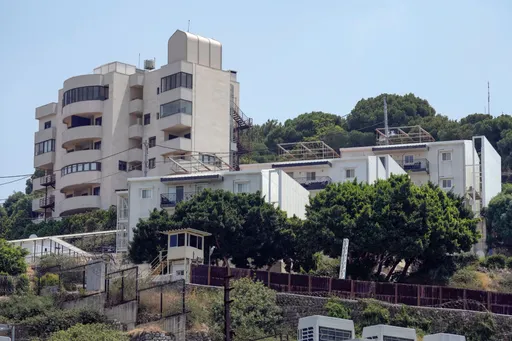In an unprecedented development, a few Arab countries signed a regional pact with Israel on January 14, ending more than half-a-century-old isolation of the Jewish state when it comes to multilateral economic and political deals.
Egypt, Greek Cyprus and Jordan are among the countries that have joined hands with Israel to create the Eastern Mediterranean Gas Forum, a common market to trade natural gas.
“It not only creates a framework for developing the region’s energy, but it marks the first time Israel has been admitted to a regional grouping that will give it official status in the Arab world,” Israel’s Haaretz newspaper wrote in an analysis.
Greece, Italy and Palestine are also part of the organisation, which aims to place Eastern Mediterranean countries at the centre of a natural gas transit hub that is vital for the European Union’s economy.
It has been created at a time of heightened petroleum exploration activity in the Mediterranean Sea.
The organisation, which will be headquartered in Cairo, seeks to cement commercial ties between members, including Israel, which used to be subject of a trade and economic boycott by the Arab League, the organisation of 22 Middle Eastern and African countries.
“This forum is important because it allows member countries to pool their resources and exploit their natural gas sources,” Sohbet Karbuz, a petroleum analyst, told TRT World.
“Egypt is sitting on idle LNG [liquified natural gas] capacity while Israel has access [to] natural gas, which it can export to markets in Asia or Europe by using Egyptian infrastructure.”
But the organisation doesn’t include key regional players, including Turkey and Lebanon.
Turkey is entirely dependent on energy imports, and the government has increased efforts to meet that demand from indigenous sources.
Ankara and Greek Cyprus have a long-running dispute on jurisdiction over the offshore oil and gas reserves in the eastern Mediterranean.
Last year, the Turkish military blocked Italian energy giant ENI’s drilling vessel that had been contracted by Greek Cyprus from drilling in the area.
Turkey has said numerous times that Greek Cypriots are disregarding the "inalienable rights on natural resources" of Turkish Cypriots and jeopardizing the region's stability.
Karbuz said there is still a chance that Turkey might join the grouping as Cairo has indicated that it was open to including more countries.
For existing members, the creation of the organisation has come at an important time.
Egypt has ramped up its production from its gas field, pumping out enough to fuel its economy without importing the pricey liquified natural gas.
Cairo will start importing gas from Israel this year under a $15 billion deal that is meant to be re-exporting to international markets.
A sea change
Israel has for long yearned to get official status in the Arab world, something that this forum helps it achieve.
“Israel exporting natural gas to the Arab world and also to Europe — this is something that sounded like a dream or a fantasy just 10 or 15 years ago,” said Yuval Steinitz, the Israeli energy minister during his visit to Cairo for the signing ceremony.
The decades-long boycott led by the Arab League not only barred their citizens from trading with Tel Aviv but even imposed penalties on multinationals that had operations in Israel.
“Almost all the major Japanese and Korean car manufacturers — including Honda, Toyota, Mazda and Mitsubishi — complied with the secondary boycott, and their products could not be found on Israeli roads,” wrote Dan Senor and Saul Singer in their book “Start-Up Nation: The Story of Israel’s Economic Miracle.”
While many Arab countries still don’t trade with Israel, they no longer use their clout to discourage international companies from investing there.
Egypt and Jordan establish trade and diplomatic links after recognising Israel.
The United Arab Emirates (UAE) and Saudi Arabia have also warmed up to Israel and the two Gulf allies are reportedly cooperating with the Jewish state to counter their mutual enemy — Iran.
A few developments last year indicated that the Jewish state might finally be reaching a rapprochement with its Arab neighbours. In October 2018, Netanyahu travelled to Oman to meet the Sultan, where he was given a state reception.
That preceded a visit by Israel's Sports and Culture Minister Miri Regev to Abu Dhabi, where she cried while the Israeli national anthem played at a sporting event.
It remains to be seen whether it will help Palestine develop its Gaza Marine gas field, located 30 km off the coast of Gaza Strip and discovered by British Petroleum in 2000.
The reservoir containing over one trillion cubic meters of gas has not been developed because of an Israeli blockade.























